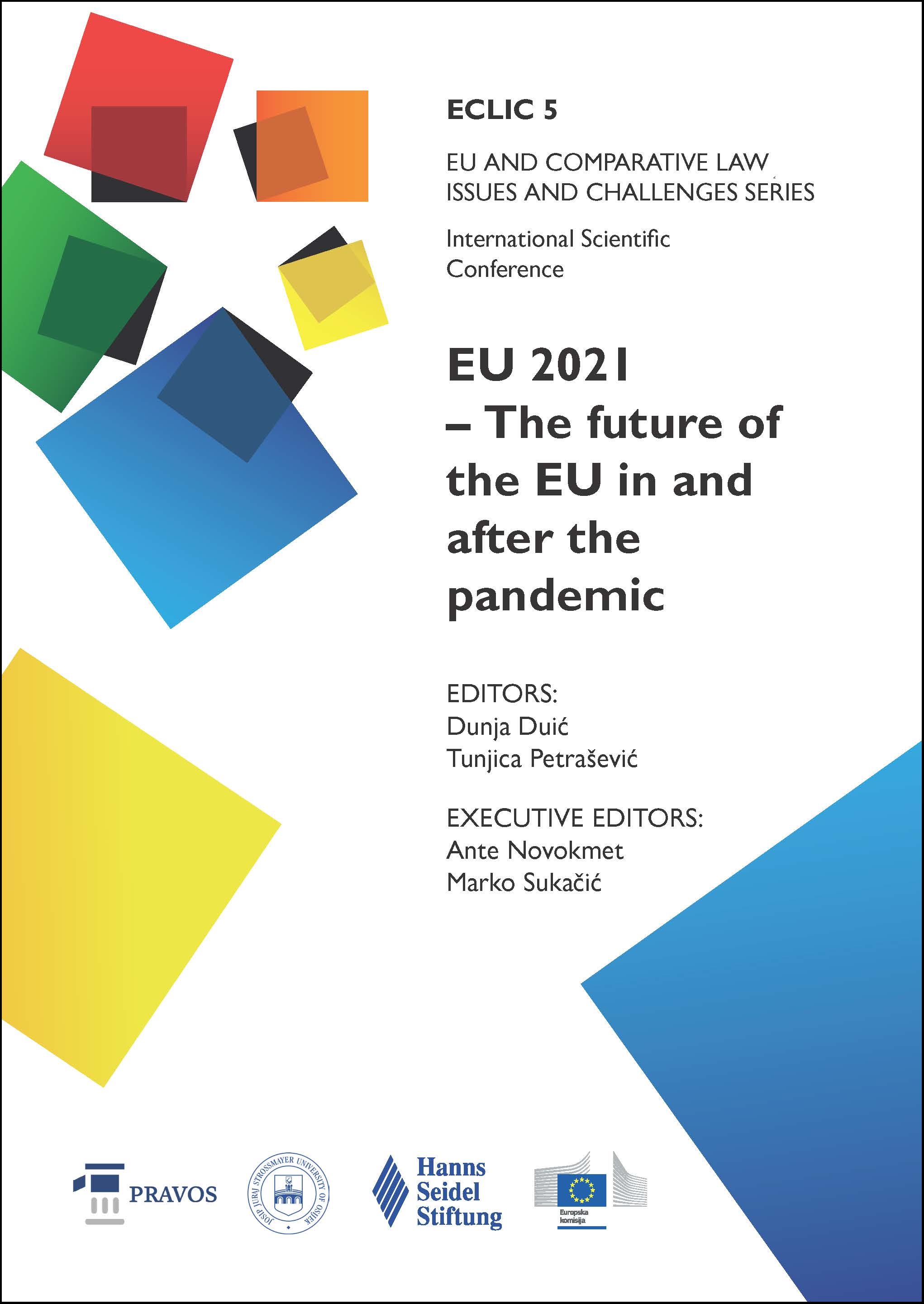SOLIDARITY CHECK IN TIMES OF COVID-19. ANALYSIS OF THE EU APPROACH TOWARDS ITS CLOSEST NEIGHBOURS WITH A SPECIAL FOCUS ON MONTENEGRO
DOI:
https://doi.org/10.25234/eclic/18303Abstract
Solidarity as one of the cornerstone values of the European Union has been once again seated on the red chair and intensively discussed within the European Union and broader. After the economic recession and migrant crisis that marked the last two decades, the outbreak of the COVID-19 pandemic has once again harshly tested the fundamental objectives and values of the European Union and the responsiveness and effectiveness of its governance system on many fronts. In April, 2020 several EU Member States were among the worst affected countries worldwide and this situation soon became similar in their closest neighbourhood. It put a huge pressure on the EU to act faster, while at the same time placing this sui generis community to the test that led to revealing its strengths and weaknesses. As it happened in the previous crises, the Union launched policies and various programmes that were meant to lessen the burden of the Member States and aspiring countries caused by the crises. The objectives of the mentioned soft law instruments that the EU adopted during the COVID-19 crisis has been not only to show that EU law is equipped to react to health and economic crises rapidly but to deliver its support in terms of solidarity to its Member States and its closest neighbours facing the unprecedented health and economic crisis. This article will explore the value and implication of the solidarity principle in times of Covid-19 in its various manifestations. A special focus will be on the financial and material aspects of the EU instruments created to combat the negative consequences of the pandemic and their further impact on shaping the solidarity principle within the EU system. While examining the character and types of these mechanisms a special focus will be placed on those available to Western Balkan countries, whereas Montenegro as the “fast runner” in the EU integration process will be taken as a case study for the purpose of more detailed analyses. One of the major conclusions of the paper will be that although the speed of the EU reactions due to highly complex structure of decision making was not always satisfying for all the actors concerned, the EU once again has shown that it is reliable and that it treats the Western Balkan countries as privileged partners all for the sake of ending pandemic and launching the socio-economic recovery of the Western Balkans. Analytical and comparative methods will be dominantly relied upon throughout the paper. This will allow the authors to draw the main conclusions of the paper and assess the degree of solidarity as well as the effectiveness of the existing EU instruments that are available to Montenegro and aimed at diminishing negative consequences of the crisis.
Downloads
Published
How to Cite
Issue
Section
License
Copyright (c) 2021 Stefan Đurić, Bojana Lalatović

This work is licensed under a Creative Commons Attribution-NonCommercial 4.0 International License.
Authors retain the copyright on the papers published in the Journal, but grant the right of first publication to the Journal. Papers accepted for publication or already published in ECLIC of the Faculty of Law in Osijek may be published by the author(s) in other publications only with proper notice of its previous publication in ECLIC.


